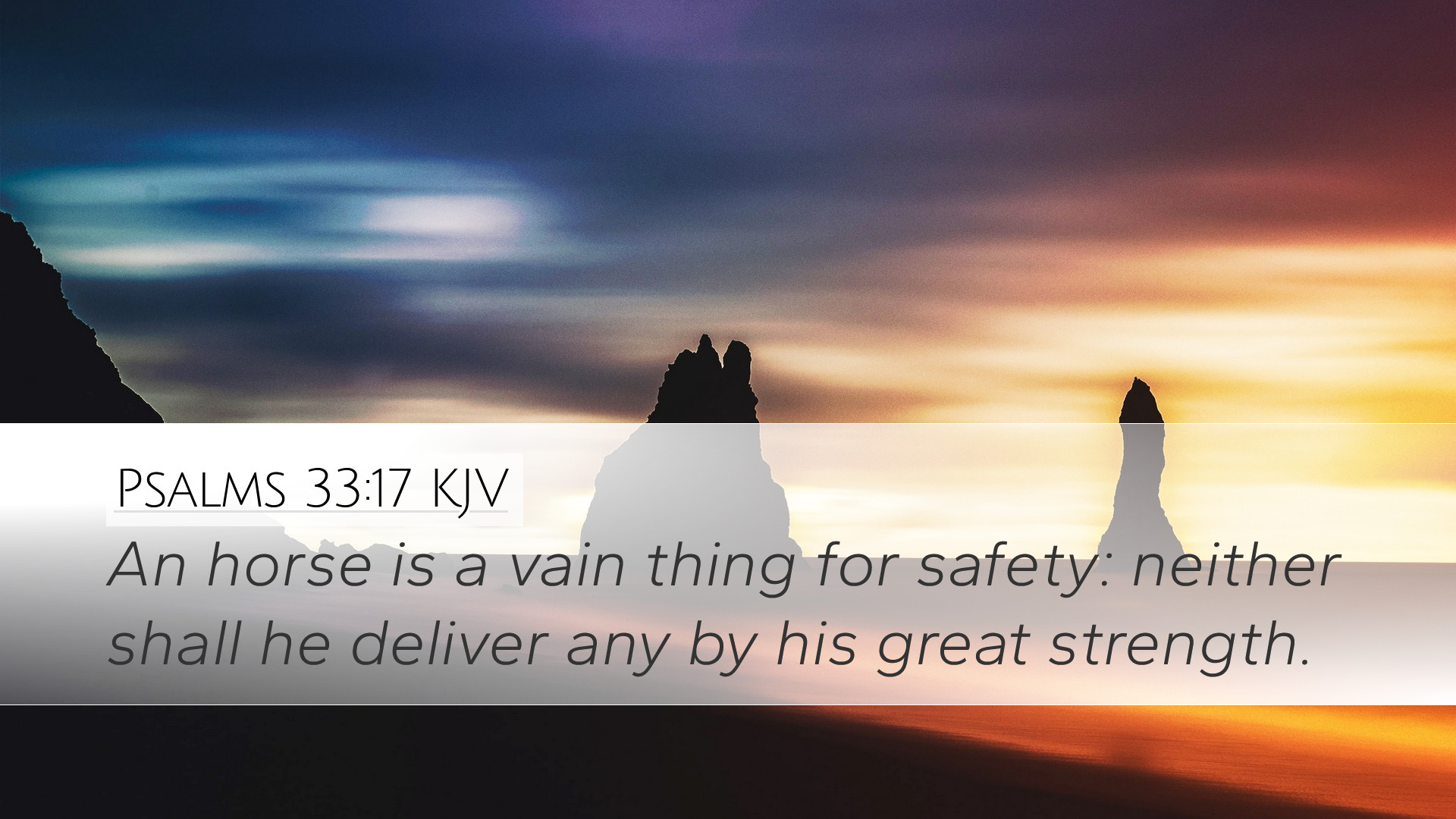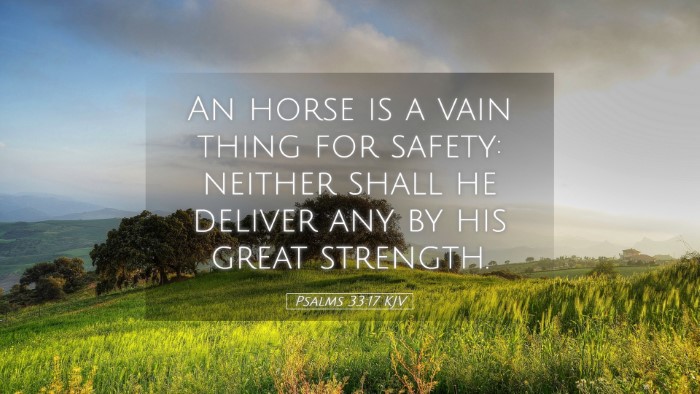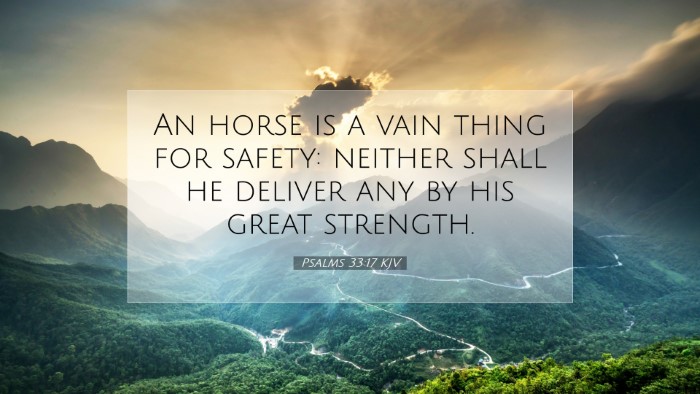Psalms 33:17 Commentary
Bible Verse: Psalms 33:17 - "An horse is a vain hope for safety: neither shall he deliver any by his great strength."
Introduction
This poignant verse from Psalms encapsulates the theme of trust and reliance. While at first glance it addresses the futility of confidence in military might, it opens a broader discussion on the nature of reliance and the sovereignty of God in providing true safety and security.
Exegesis and Context
The psalmist, believed to be David, presents a contrasting view to the common reliance on horses, symbols of power and strength in ancient times. This verse comes in the context of a larger reflection on God's providence and the folly of human dependence on earthly means.
Insights from Matthew Henry
Matthew Henry emphasizes the metaphor of the horse representing human strength and military prowess. He suggests that such reliance is "vain," pointing to Psalm 20:7 where it is written, "Some trust in chariots, and some in horses: but we will remember the name of the Lord our God." This illustrates that true deliverance comes from God alone, not from the might of men.
Henry further expounds that the psalmist’s message is one of encouragement to look beyond material resources and to anchor one’s trust in the Almighty, who is capable of delivering from impending dangers.
Albert Barnes’ Interpretation
Albert Barnes elaborates on the idea that the horse, as a symbol, reflects the reliance on human strength, which ultimately fails. He posits that the verse teaches a broad principle: regardless of how great a person's resources or abilities may be, they will not ensure safety without God’s providence.
Barnes notes that this passage can be a powerful reminder for leaders and nations that true deliverance is not rooted in military might but in divine assistance. This challenges believers to evaluate their own confidence and ground it in faith.
Adam Clarke’s Perspective
Adam Clarke interprets the verse not merely as a caution against over-reliance on military might but as a universal principle that applies to all areas of life where one may place trust. Clarke remarks on the illustrative nature of the horse as a "vain hope," noting that no amount of strength can ensure success when it is not supported by God’s will.
He urges the readers to understand the transient nature of physical strength and to cultivate a heart that relies on the eternal security found in God alone.
Theological Implications
In light of these commentaries, Psalms 33:17 serves as a critical theological touchpoint. It invites readers to reflect on their own lives and the various "horses" they might be tempted to trust—be it wealth, authority, or intellect. Each offers an illusion of safety but fades in comparison to the protection inherent in divine trust.
- The Nature of True Trust: The verse delineates the difference between worldly reliance and spiritual trust. True faith rests in God’s sovereignty rather than human ability.
- Challenges to Leadership: For pastors and leaders, the challenge lies in mentoring congregations to seek God’s provision over worldly resources, both in spiritual and practical matters.
- Hope and Assurance: There is a profound encouragement in knowing that while human strength may fail, God’s power and presence remain steadfast.
Concluding Thoughts
Psalms 33:17 serves as a sobering reminder of the limitations of human strength. As pastors, students, and theologians delve into this text, they are encouraged to foster a deeper reliance on God, understanding that in every endeavor—whether personal, ministerial, or communal—the foundation must be rooted in faith.
Ultimately, this verse calls for a proactive evaluation of where trust is placed, challenging the faithful to rediscover the immense security found in God amidst a world swaying on the crutches of human confidence.


